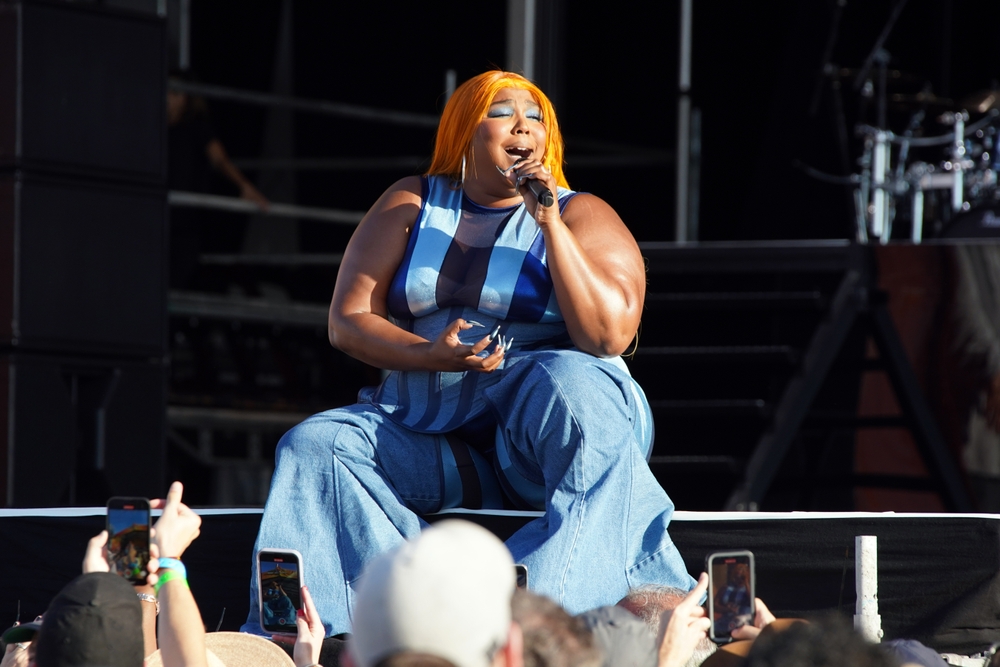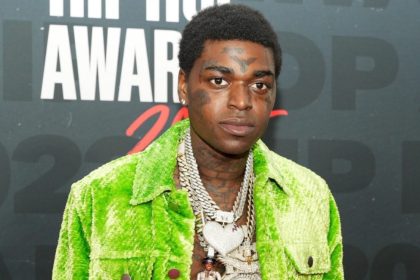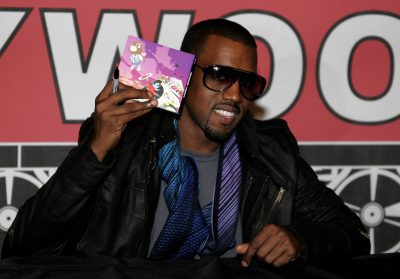Lizzo made her triumphant return to Studio 8H this past weekend, transforming the “Saturday Night Live” stage into a platform for both musical excellence and pointed political commentary. The performance marked a significant moment for the artist who has recently faced public scrutiny while simultaneously sharing her body-positive transformation journey throughout 2025.
The political fashion statement
When Lizzo took center stage during the Jon Hamm-hosted episode, her appearance immediately commanded attention. Donning a crop top with “TARIFFIED” emblazoned across it in bold red lettering, the artist made her intentions clear before singing a single note. This deliberate fashion choice directly addressed former President Donald Trump’s controversial economic policies, setting the tone for a performance that would blend entertainment with activism.
The visual impact was amplified by the projected American flag behind her, creating a backdrop that contextualized her message within the current political landscape. As cameras captured her confident stance, viewers witnessed an artist reclaiming her narrative amid ongoing public discourse.
Musical resilience on display
Lizzo’s performance featured a powerful medley of “Love in Real Life” and “Still Bad,” delivered with unmistakable conviction. Her vocals remained strong and precise throughout, demonstrating that recent controversies — including workplace misconduct allegations — hadn’t diminished her artistic capabilities or stage presence.
The choreography incorporated elements that emphasized strength and defiance, with Lizzo moving across the stage with purpose and authority. Each musical transition felt intentional, building toward a cohesive statement about perseverance in the face of adversity.

Audience polarization
Social media platforms erupted with commentary following the broadcast. Supporters praised Lizzo’s boldness, with numerous fans highlighting the significance of her wardrobe choice. Many viewers noted that Lizzo doesn’t simply wear outfits but rather wears messages, capturing the intentionality behind her presentation.
Critics, however, questioned the sincerity of her political statement, suggesting it might be calculated for publicity rather than genuine activism. This division in public response underscored the polarizing nature of combining entertainment with political messaging, particularly in today’s fragmented media landscape.
Despite varied reactions, the conversation remained centered on Lizzo’s performance — a testament to her cultural relevance even when facing professional challenges.
The evening’s political context
The episode featured additional political content that complemented Lizzo‘s approach. Host Jon Hamm participated in “The White POTUS,” a sketch parodying the popular series The White Lotus while incorporating anti-Trump humor. This created a thematic throughline for the broadcast, establishing a framework where Lizzo’s statement felt cohesive with the overall tone.
The comedic elements throughout the show provided counterbalance to the more serious undertones of Lizzo’s performance, creating a viewing experience that moved between entertainment and commentary—a hallmark of SNL’s most memorable episodes.
Vulnerability as strength
Later in the broadcast, Lizzo returned to the stage in a striking gold gown to perform “Don’t Make Me Love You.” This segment revealed a different dimension of her artistry, showcasing emotional vulnerability that contrasted with her earlier, more defiant performance.
The ballad allowed Lizzo to demonstrate her vocal range while connecting with viewers on a more intimate level. The stripped-back arrangement highlighted the raw emotion in her delivery, proving that her talent extends well beyond provocative statements or trending topics.
This duality — moving between bold political commentary and heartfelt emotional expression — illustrated Lizzo’s artistic depth and versatility.

Cultural significance beyond entertainment
Lizzo‘s SNL appearance represents more than just another musical guest spot on a long-running television program. It exemplifies how contemporary artists navigate the complex intersection of entertainment, personal identity, and political discourse.
As an influential figure in popular culture, particularly for the African American community and advocates of body positivity, Lizzo’s willingness to address controversial topics while maintaining artistic integrity establishes a template for engagement that resonates beyond traditional entertainment boundaries.
Her performance demonstrates that musicians can simultaneously entertain audiences and challenge them to consider important social issues — a delicate balance that few artists successfully achieve.
Whether viewers agreed with her political messaging or not, Lizzo’s SNL return undeniably succeeded in generating conversation about both her artistry and the topics she chose to address through her performance.
By refusing to separate her music from her convictions, Lizzo continues to define herself as an artist whose work exists within the context of larger cultural moments — making her SNL appearance a noteworthy chapter in her evolving public narrative.
















